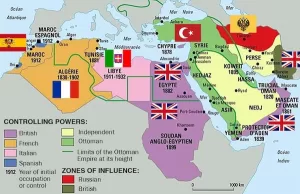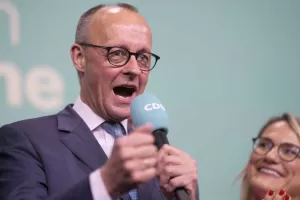Burkina Faso cheered and celebrated at the news of Apollinaire Joachim Kyélem de Tambèla’s appointment to office as prime minister on October 21st, 2022. While there are many new faces and figures in Burkinabé politics right now, Kyélem de Tambèla is a familiar face to many Burkinabé who have known him for decades. In other circumstances this label may be given out too freely but, Kyélem de Tambèla has rightfully earned the title of Sankarist as demonstrated by his own background.
As a student in France in the 1980s, Prime Minister Kyélem de Tambèla founded the Committee for the Defense of the Revolution (CDR) in Nice, Côte-d’Azur to defend and financially support the revolutionary struggle waged by Sankara and the Burkinabé masses. During this period, he also organized with leftwing groups: The National Union of Students of France (National Union of Students (UNEF) and the Union of Communist Students (UEC).
As an author, lawyer, and academic his magnum opus is Thomas SANKARA et la Revolution au Burkina Faso: Une Expérience de Développement Autocentré a 500-page book in which he details the history and philosophy of the Burkinabé Revolution. He cites Thoms Sankara, Kwame Nkrumah, Cheikh Anta Diop, Frantz Fanon, George Padmore, Karl Marx, Friedrich Engels, Vladimir Lenin, Eduardo Galeano, and Samir Amin among others.
President Traoré and Ministers Decrease Their Salaries
Shortly after his appointment, one of Prime Minister Kyélem de Tambela’s first actions was to call for a lowering of the President’s and various ministers’ salaries. He famously declared, “I have already said that Burkina Faso cannot be developed outside the line drawn by Thomas Sankara.”
While former president, Paul-Henri Sandaogo Damiba increased his salary and those of the ministers during his short term in office, the current President Ibrahim Traoré has opted out of any presidential salary. Instead, Traoré has decided to keep the same salary that he had as a military captain in order to “show this spirit of sacrifice which must inhabit each Burkinabé in the current situation of our country.”
Meanwhile, during the month of November, the ministers gave up 50% of their salaries to the National Solidarity Fund which goes to help disadvantaged Burkinabe, especially internally displaced people.
Leaving the Western Camp
As all of this was unfolding, the main question on everyone’s mind was whether or not the government would finally fulfill the desire of the masses by following in Mali’s footsteps and abandoning the French pré carré (backyard). The courageous actions of the Assimi Goïta administration in Mali completely transformed the atmosphere of the Sahel and the people across the sub-region have become tireless upon seeing the new possibility that has emerged with Mali’s escape from the western camp.
In early December, we saw the first clues as to the direction of this new administration. On December 3rd, 2022 a government communiqué announced the suspension of French-state-sponsored media Radio France International (RFI) until further notice. RFI along with French- state-sponsored media France 24 has similarly been banned in Mali since March 17th, 2022. France 24 would also run into trouble with the Traoré administration in Burkina Faso. On January 23rd, 2023, a correspondent from France 24 was summoned before the Council of Superior Communication (CSC). The outcome of this convocation and the long-term relationship between the administration and the popular French media outlet remains to be seen.
In the meantime, the administration has provided a definitive response to the questions raised by the masses through two key actions: the demand for the departure of the ambassador to Burkina Faso, Luc Hallade, and the expulsion of the French troops by the end of February. On January 2nd, 2023, Minister of Communication Jean-Emmanuel Ouedraogo confirmed that the government of Burkina Faso demanded the departure of French ambassador Luc Hallade. While not an end to a diplomatic relationship with France, the call signaled a changing order which was confirmed by the end of the month.
After over a year of mass mobilizations and several years of grassroots struggle, the much-awaited moment finally came. On January 18th, 2023 it was officially confirmed that the Traoré government had given the French troops one month to evacuate from Burkina Faso, ending the military agreement signed between Burkina Faso and France in 2018. On February 20th, 2023 it was confirmed that the French troops had evacuated Burkina Faso.
Living in a Multipolar World
The people of Burkina Faso are well aware that the world is rapidly changing. While collaboration with western countries such as the United States, Canada, and states within the European Union has long been seen as the only option on the table, new options are emerging in an increasingly multipolar world. Various grassroots Pan-African organizations in Burkina Faso have been calling for a closer relationship with Russia, an emerging world power that, unlike France, does not have a history of covert regime change operations or monetary and economic domination in Africa.
On December 7th, 2022, Prime Minister Kyélem de Tambèla visited Russia to meet with officials. During an interview with RT, Kyélem de Tambèla stated that Burkina Faso would like to ally with Russia in the fight against terrorism and would also like a stronger relationship with Russia in other areas such as trade, culture, transport, and health. In his words, “We would like Russia to take its rightful place as a great nation in my country because there is an experience of Russia and we would like it to share that with us,”
In a similar vein, Prime Minister Kyélem de Tambèla met with Iranian Deputy Minister of Foreign Affairs, Ali Bagheri on January 20th, 2023 during his visit to Ouagadougou. The two ministers discussed the various ways in which their countries could strengthen their relationship. They agreed to form a joint Iran-Burkina Faso commission with a session in Ouagadougou in the near future. Prime Minister Kyélem de Tambèla was also invited to visit Tehran. He furthermore proposed the creation of an airline between Tehran and Ouagadougou, which would make the capital of Burkina Faso, a sub-regional hub for Air Iran. While much of the conversation revolved around military collaboration, Minister Bagheri also stated, “Our two countries have the firm will to strengthen their relations in various fields, more particularly in the economic, political, and health fields. In the near future, the new ambassador of the Republic of Iran will move to Ouagadougou. Also, Burkina Faso has decided to reopen its embassy in Tehran.”
Towards Pan-African Federation
Finally and perhaps most importantly, the direction of the new administration in Burkina Faso can be measured by its adamant support for the creation of a federation of African states. “The United States of Africa” is a term heard all over the streets of Ouagadougou these days and Prime Minister Kyélem de Tambèla is convinced by the vision.
At the beginning of February, Prime Minister Kyélem de Tambèla met with the President of Mali Assimi Goïta, and other Malian authorities to express his people’s desire for an African federation. He stated, “We are considering a Federation today. This is our short or medium-term objective. We need everyone’s support in this sense because as long as we remain isolated, we are fragile. The Mali-Burkina Faso Federation will constitute a much more decisive striking power.” To clarify his use of the term federation, he cited the example of the Mali Federation during which Mali, Senegal, Burkina Faso, and Benin attempted to unite into a single country in the late 1950s.
On February 9th, Malian Minister of Foreign Affairs Abdoulaye Diop and Guinean Minister of Foreign Affairs Dr. Morissanda Kouyaté met with Prime Minister Kyélem de Tambèla in Ouagadougou. Prime Minister Kyélem de Tambèla insisted upon a Burkina Faso-Mali- Guinea Federation drawing from the revolutions waged under the leadership of Thomas Sankara (Burkina Faso), Modibo Keïta (Mali), and Ahmed Sékou Touré (Guinea). In his words, “Not long ago, Ibrahim Cissé walked from Bamako to Ouagadougou to call for the federation. We must measure the determination of this Malian citizen. Are we going to let this go unheeded? We must become aware and join together to realize the dream of our people.” Ibrahim Cissé is an African patriot who walked from Mali to Burkina Faso’s capital on foot over the course of three weeks covering 822.2 kilometers or 510 miles to express support for an African federation. The three ministers also discussed the construction of an Ouagadougou-Bamako-Conakry railroad to facilitate political integration.
The Pan African Film and Television Festival of Ouagadougou (FESPACO), Burkina Faso’s most internationally important cultural festival, demonstrated the strengthening of the Burkina Faso-Mali alliance. Mali was selected as the country of honor this year and Prime Abdoulaye Maïga was once again in Burkina Faso between February 24-26th. Accompanied by the Malian delegation, Prime Minister Kyélem de Tambela of Burkina announced before the press that the intention of the Malian and Burkinabé transition governments is to lay the groundwork for the creation of a Mali-Burkina Faso federation that could not be dismantled by future political administrations. It was stated that both the Malian and Burkinabé heads of state were in agreement and working on the initial steps in the creation of such a federation.
Before leaving Burkina Faso, Prime Minister Abdoulaye Maïga co-signed a communiqué with Prime Minister Kyélem announcing the creation of a bilateral consultation framework that would be used to collaborate on security issues, the struggle against the sanctions imposed upon both countries, and the creation of a Mali-Burkina Faso federation.
In the meantime, the Burkinabe Minister of Energy, Mines, and Quarries met with the Malian Minister of Mines, Energy, and Water to begin the discussion of a shared electrical connection to help industrialize both countries as well as collaboration to protect their mineral resources.
May Ancestor Thomas Sankara Finally Rest in Peace
In the short time that President Ibrahim Traoré has been in power, he and his cabinet have demonstrated profound admiration for Thomas Sankara. Sankara, along with the 12 other revolutionaries that were assassinated alongside him, was given proper burials at the Thomas Sankara memorial site on February 23rd, 2023. According to Mousbilla Sankara, Thomas Sankara’s uncle, “[This burial is] the first time I’ve seen Catholics, Protestants, and Muslims perform the same ceremony for corpses. It means that it is a sign of union.” The intimate event was reserved for close family members and friends of Sankara but a large public event is planned for October 15th, 2023, the anniversary of Sankara’s assassination. Sankara’s body had been extracted from his modest makeshift tombstone eight years ago for legal reasons. Now he rests in an appropriate location where Burkinabé, Africans, and people around the world can pay him respect.
The only true justice for Thomas Sankara is revolution. Nothing short of revolution can serve as a substitute or reparation for the crimes committed against Sankara and Africa. The time has come for Africans everywhere to organize to defend the struggle for sovereignty waged by Burkina Faso and Mali in opposition to neo-colonialism. Pan-Africanism must move beyond words and towards actions of concrete support for states that are adopting Pan-African praxis as national policies.




